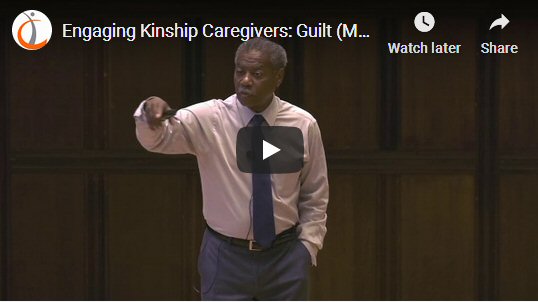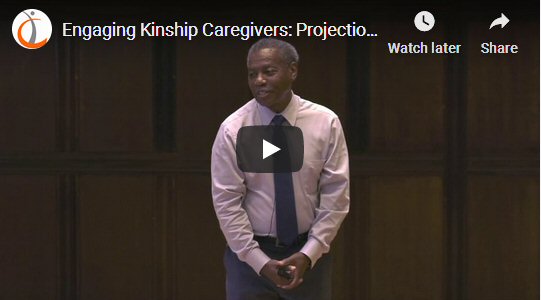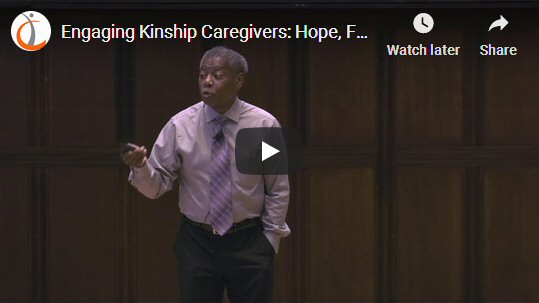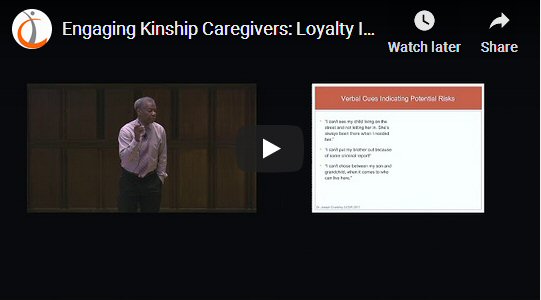|
|
||
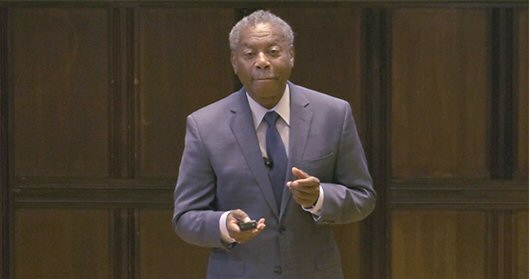 As the number of kinship caregivers increases for children in foster care and more child welfare jurisdictions adopt a “kin first” placement practice, the need to provide specialized support for relatives is becoming even more crucial. These relatives are doing what families have always done — caring for their own. However, with the added complexity of child welfare system involvement, financial stress and multigenerational loyalty binds, these families deserve assistance from professionals trained to meet their unique needs. To support systems and caseworkers in this work, the Foundation developed a five-part video training series: “Engaging Kinship Caregivers: Managing Risk Factors in Kinship Care.” Led by Joseph Crumbley, the training sessions strengthen the skills of child welfare professionals in supporting families to improve outcomes for children. The series includes a discussion guide to help program directors, supervisors and trainers lead group sessions to deepen the learning experience. DOWNLOAD THE DISCUSSION GUIDEIntroductionThe Foundation's Tracey Feild offers an introduction to "Engaging Kinship Caregivers." 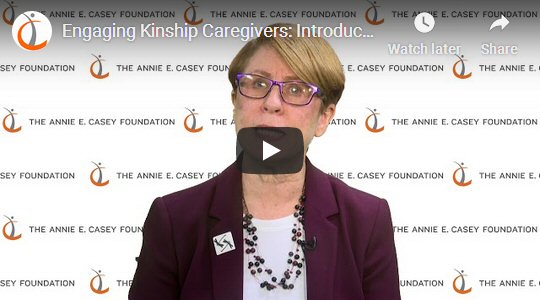 View Video Module One: GuiltThis module explores how to manage the understandable feelings of guilt that relative caregivers may experience as a result of changing family dynamics.
Module Two: Loss and AmbivalenceThis module explores how kinship care creates interruptions of the caregiver’s plans, priorities, space and privacy and how these can contribute to feelings of loss and ambivalence for the relative caregiver. 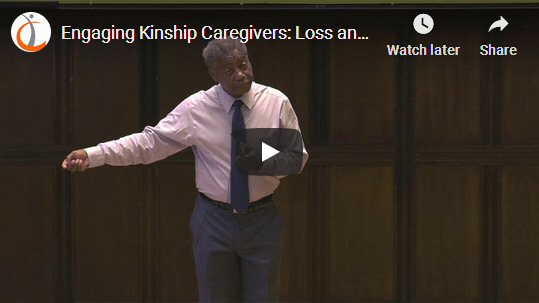 View Video Module Three: Projection and TransferenceThis module explores projection and transference, which are psychological terms about unconscious processes where we redirect our emotions from one person to another.
Module Four: Hope, Fantasy and DenialThis module explores how one person’s hope can be another person’s denial. Understanding how important hope is for family members is critical to empathetically working with them to maintain these hopes and to make other plans.
View Video
|

